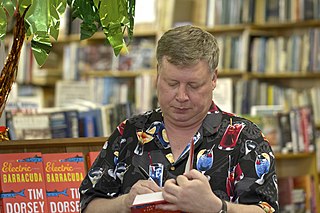A Quote by Clive Lewis
To describe 'Mutually Assured Destruction' as an 'insurance policy' would be comical if it wasn't such an appalling concept.
Related Quotes
The Cold War philosophy of Mutual Assured Destruction (MAD), which prevented the former Soviet Union and the United States from using the nuclear weapons they had targeted at each other, would not apply to President Mahmoud Ahmadinejad's Iran. For him (Ahmadinejad), Mutual Assured Destruction is not a deterrent, it is an inducement.
Kyoto costs a lot, does nothing to prevent calamity, and pays no compensation in the event of loss. If my insurance broker offered that sort of policy, I would not carry insurance. Instead what my broker offers is a policy that costs a little and pays full compensation in the event of loss. If someone wants to propose that as a policy on global warming, I'm all in favour.
The threat of mutually assured destruction worked for the United States during the Cold War because it had proved its willingness to drop nuclear bombs on enemy cities at the end of World War II. It might work less well for Israel, because the Israeli Air Force has never deliberately targeted a large civilian population center, and its leaders have said its morality would not permit it do so.
Apollo 11 will probably go down in history as one of the major responses of two nations facing each other with threatening technologies - sometimes called mutually assured destruction. It was also the America's response to the apparent superiority of the Russians in putting objects into space before USA could.































